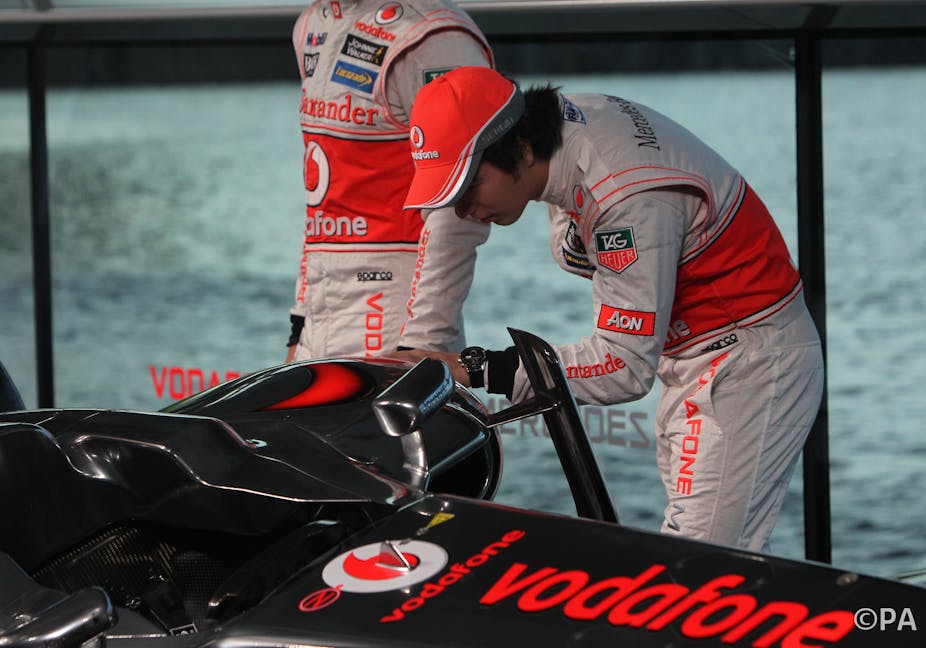It’s the biggest corporate deal in more than a decade. Since the AOL-TimeWarner and the Mannesmann-Vodafone deals at the turn of the century, no transaction has come close to the US$130 billion involved in the sale of Vodafone’s 45% stake in Verizon Wireless.
Most executives would get quite excited about what one might achieve with this kind of money. Not Vodafone’s CEO Vittorio Colao. He and his team have decided to pass on 71% of the proceeds directly to shareholders, leaving him, after servicing debt and tax obligations, with only US$6 billion to play with. These are earmarked for an organic investment programme entitled “Project Spring”, which seems, by and large, a continuation of its ongoing “Vodafone 2015” network expansion strategy. Critics wonder if this is enough.
The windfall for shareholders has been likened to a fortuitous stimulus to the British economy. In any case, short-term investors will be more than happy. Anyone who has bought Vodafone shares in the last few days, despite the rapid increase in price, will not be disappointed. But what about stakeholders with a more long-term interest in the health of the company?
The telecommunications industry is fraught with uncertainty and not for the faint-hearted. It is not just that technologies come and go at an alarming rate, turning the tables on incumbents every three years or so. New challengers do too. The trend towards convergence of traditionally separate areas of business is enlarging the set of direct competitors.
Companies with origins in the provisioning of cable TV, broadband internet, and fixed telephony, are now increasingly likely to all offer all three types of services in one integrated package. Pick up your landline and your call will travel as VoIP (voice over internet protocol). Your landline phone has probably become cordless, communicating wirelessly with a modem. When you surf the net, your computer may communicate wirelessly too, with the same modem, using the same broadband line as your phone. Whether you watch TV on your desktop, a classic TV screen, or another device, they connect the same way. What you pay for is connectivity. How you use it is up to you.
The latest addition to this package is mobile telephony. Since the advent of 4G, the speed at which you can surf the net or watch TV on your phone and iPad is comparable to using your desktop PC. In fact, some customers may soon get a faster connection using 4G than they can via broadband, since high-speed coverage in less densely populated regions is more efficiently achieved through mobile networks than fibre cables that are brought all the way to the door. If 4G works just as well as wifi, why not get all of your connectivity this way?
Vodafone recognised this development and recently abandoned its mobile-only strategy. Its investments in Cable & Wireless and Kabel Deutschland provide the company with a network backbone that can cope with traffic volumes more typically handled by broadband behemoths like BT. Conversely, BT has invested in a 4G licence which will allow it to service more remote customers with connectivity, edging in on Vodafone’s turf. Integrated companies such as Spanish giant Telefonica are there already.
So what were previously four separate areas of business - cable tv, broadband internet, landlines and mobile telephony - are going to be just one, that of connectivity provision. The converged field contains roughly four times more competitors than each of the original areas. Add the increasing attempts by regulators to create a pan-European market, with telecommunications providers that act seamlessly across national borders, and the number of competitors multiplies even further. It doesn’t take much to foresee some serious shake-out. Former specialist “pure-play” firms such as Vodafone face the greatest uphill battle. The Verizon boost to Vodafone’s investment capital would come just in time and it seems odd that only such a small fraction of the overall proceeds is designated for reinvestment.
Consumers care less about how connectivity arrives on their devices than about how fast, seamless, and reliable it is. Vodafone would thus be well advised to expand into high-speed broadband networks. After its recent deals in the UK and Germany, Vodafone could look towards Italy and Spain, its next biggest markets in Europe.
In Italy, Fastweb, a subsidiary of Swisscom, appears a candidate for network acquisition. Vodafone’s investment in Spanish networks, jointly with Orange, stand to reach about 20% of households there and could be beefed up by an acquisition of Ono, a local provider with good coverage but as-of-yet lower network speeds. Beyond acquisitions, existing networks in key markets such as the UK, Germany, Italy and Spain would benefit from continued upgrading.
Moving into new countries presents another possible option. For example, Telecom Italia’s and Vivendi’s operations in emerging Brazil could be bought and combined into a larger mobile player. But geographic expansion seems a less attractive way to spend the Verizon proceeds, because it would increase Vodafone’s breadth but not depth. It would bind capital and prevent strategic investments in Europe, much as the US stake in Verizon did. Adding more countries to the portfolio would do little to fortify Vodafone’s position in existing countries, leaving them exposed to the headwinds of convergence and increased competition. Alas, for now, the amount of money retained seems to preclude such action anyway.
These are turbulent times in the telecommunications sector, but there should still be life after the shake-out. Trends towards automated homes, and the Internet-of-Everything more generally, offer firms some attractive areas for growth. If they are still standing, that is.

